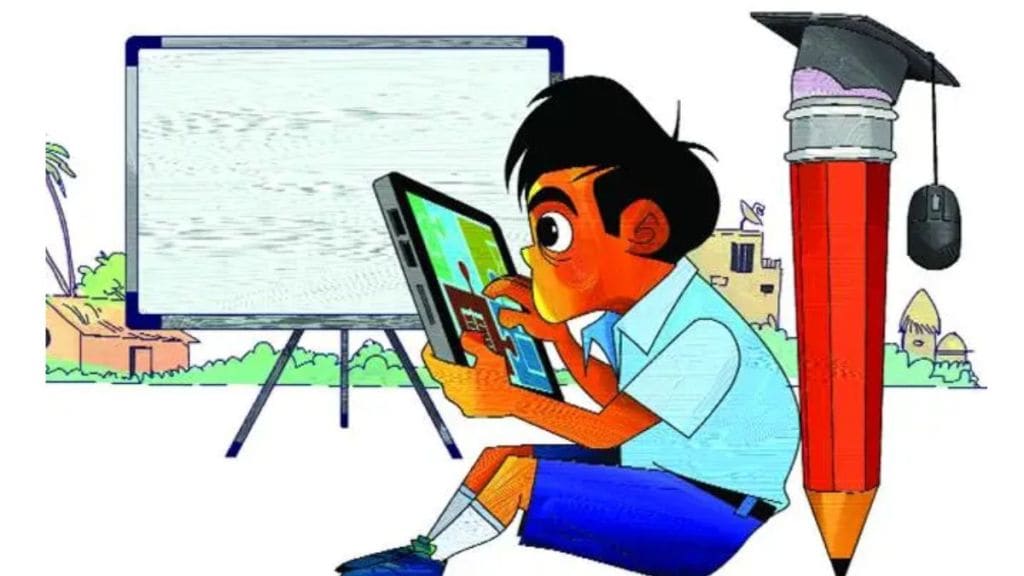From implementation of Common University Entrance Test (CUET) to the roll out of four-year Undergraduate (UG) programme to enrol into PhD, the year 2022 saw various educational developments under the National Education Policy (NEP) 2020. These developments are expected to build a smooth passage for the coming year to help the industry strive for better. FE Education interacted with some C-Suites to understand their perspective on the policy and structural changes made this year and the outlook for 2023.
Here are major insights for 2022:
Shantanu Rooj, founder, CEO, TeamLease EdTech
The CUET started by University Grants Commission (UGC) has eased out the process of application for students. Furthermore, the introduction of Curriculum and Credit Framework for Undergraduate Programme (CCFUP) that replaces the Choice Based Credit System (CBCS) has enabled multiple entry and exit options for students. This modularity shall help arrest the dropout rates of students from the higher education system.
Introduction of a new policy to allow students to pursue a four-year UG programme to enroll into PhD shall encourage research as well. Emphasis on regional languages as medium of teaching, textbooks, assessments shall help include the marginalised into the education system and improve the Gross Enrollment Ratio (GER) of the country. A concerted effort to include an element of on-job learning for all UG programmes shall enable skill building in situated environments alongside academic prudence.
As we are entering the new year with new possibilities; we expect fair competition between service providers, and this is excellent for the students. They will get the right outcome and the ROI for their investments. In the long term, this shall help the country improve its productivity and resilience!
Beas Dev Ralhan, CEO, Next Education
Ed-tech industry in 2023 should focus on NEP’s strong emphasis on teaching students crucial 21st-century skills such as problem-solving, creative and critical thinking, digital literacy, experiential learning and global competency to help them to become the key-decision makers of tomorrow. The government should also recognise the necessity to modernize the entire educational system through the appropriate use of technology, which can be supported by a number of ed-tech companies as they have the resources to enable tech-based learning for the students.
Narayan Mahadevan, founder, BridgeLabz
In spite of the recession looming large over the tech sector, the non-tech sectors continue to hire and look for digital talent. This explains the mass exodus of tech talent from tech sectors to non-tech or MNCs. Also, the demand is now more for hybrid or physical talent rather than completely remote. Since the non-tech sector is hiring, there is a need for more experienced or lateral tech talent which has brought down the hiring of freshers for tech roles. Non-tech sectors do not have the understanding and the bandwidth for training fresh talent such as the tech sectors have, hence they prefer lateral or experienced talent.
The lateral talent is again more in demand as a lot of low-level tech talent can be upskilled or reskilled. Experienced professionals should be encouraged to upskill to stay abreast with the ever-evolving technologies. There are several lateral skill enhancement programmes to offer an in-depth understanding of the concepts and sufficient knowledge across domains. The tech talent must opt for skill enhancement programmes especially the ones following the experiential method to improve their employability.
Akshay Marwah, co-founder, co-CEO, AAFT Online
In the coming year, the six essential elements relevant for students across India include skill-based learning, strategic decision-making, flexible and meaningful learning, technology-based learning, personalised training, skilling for emotional and cognitive engagement, and upskilling and reskilling. Education in 2022 will also witness key technological advancements like Artificial Intelligence (AI), Virtual Learning, and Metaverse in the world of online learning and teaching. This will create more professional opportunities for people inclined toward the media and entertainment industry across India. According to a report published by IAMAI and Kantar Research, India’s internet users will rise from 622 million in 2020 to 900 million in 2025, showcasing an increased CAGR of 45%.
Aparna Prasad, founder, Knowledgeum Academy
The year 2023 looks more promising for the ‘Internationalisation of Education’. In an ever-changing world, global awareness and interconnectedness through educational internationalisation play a significant role in shaping the next generations of learners. Whether it is adapting a globally acclaimed curriculum or improving a national curriculum to global standards, Indian educational institutions have ample opportunities. As the Indian education sector is expected to grow over US $225 billion by 2025 and the NEP 2020 aims to increase the GER to 100% in preschool to secondary level by 2030; we need more empowered and equipped educators through intensive capacity-building programmes enabling a much-needed revolution in the education sector to shape these learners.


